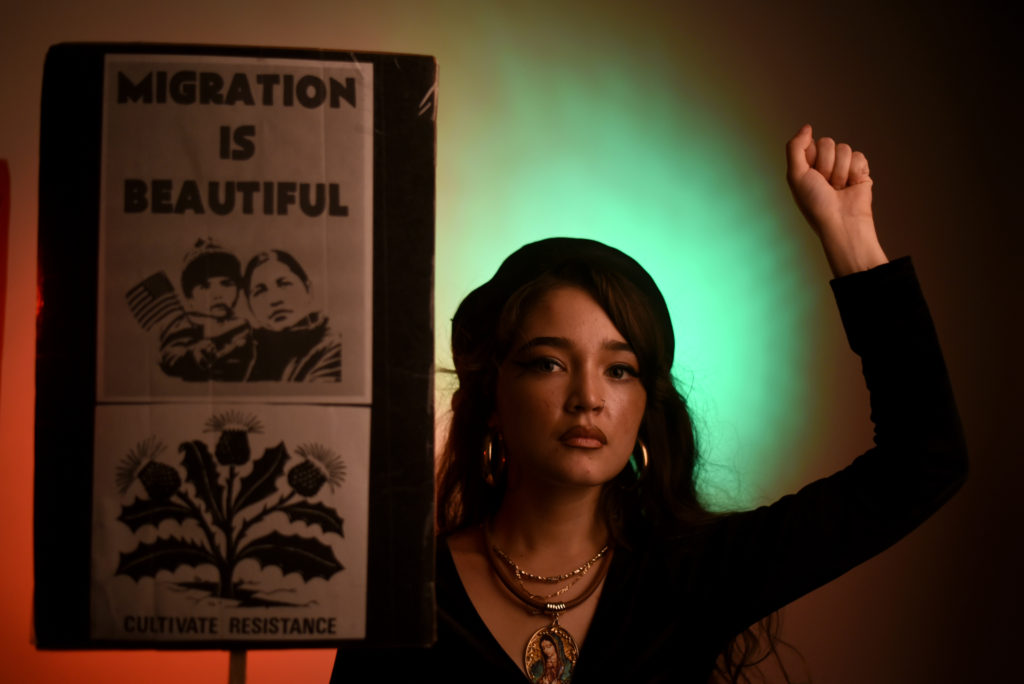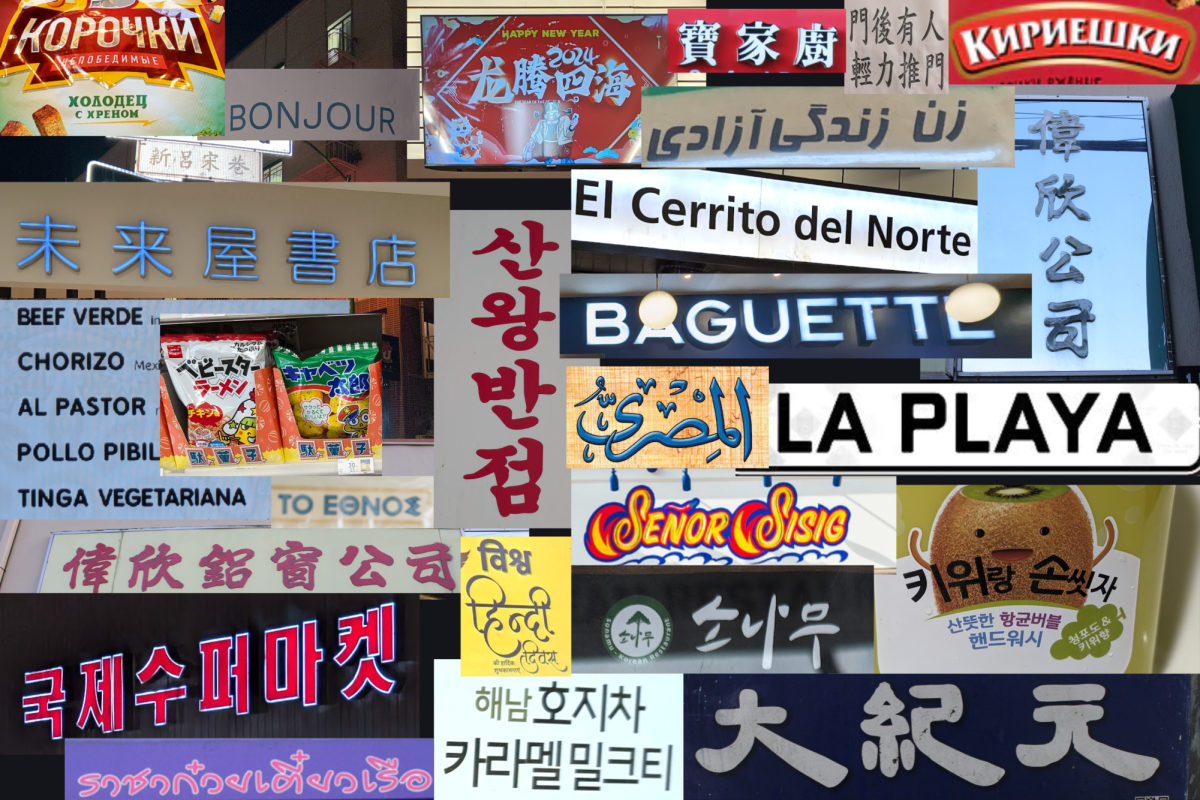Despite the heavy emotional toll, 21-year-old Chicana activist and poet Christabel Ramirez continues to navigate through the volatile political climate and her struggle of being the voice for the voiceless.
By her own standards, Ramirez, a SF State Latino/a studies major, was raised by a traditional Mexican family in San Leandro, California and struggled in her early life with her identity一 or lack thereof. Now, she wears her Chicana identity proudly一 a symbol of her journey of self-discovery.
As the daughter of a former undocumented immigrant, Ramirez was not afforded the opportunity to be passive. She decided to shoulder the responsibility of her mother’s troubles一 on top of her own.
“When he [Trump] was elected, I ran straight home,” says Ramirez. “I look at my mom, and she’s quiet. And I decided to be my mom’s voice.”
Activism manifests itself in several different ways, as she’s come to learn over the past few years. Ramirez, while politically active on platforms like Instagram, doesn’t consider herself an activist in a traditional sense.
“I have a love, hate relationship with protests. It feels like an event. It shouldn’t feel like a festival,” says Ramirez.
But activism is more than attending protests, she argues.
“I love representing myself through my outfits,” Ramirez says.
Embracing key elements of Chicana culture, Ramirez’s style is at the forefront of her identity, both online and in person. From the carefully chosen patterns she chooses to don on her body, to the large gold hoops that frame her face, her style is her love letter to herself and her community.

But above all else, her real love is activism through education.
“She is very passionate about spreading awareness when it comes to social issues not only affecting the Latino/a community, but people of color in general,” says Mariela Barrales, a fellow SF State student and friend. Barrales’ first introduction to Chicana culture was through Ramirez. “I learned so much about my culture and how beautiful it is,” Barrales recalls.
Believing she was destined to become a high school dropout, Ramirez paid little mind to her education until she took a class with Jared Kushida, her high school U.S. history teacher. She attributes one of the most pivotal moments in her life to a research paper Kushida assigned on civil rights leader Cesar Chavez. To Ramirez, Kushida was not only an encouraging teacher, but one of the catalysts to her life of activism.
“He gave me an award for ‘most likely to organize a walk-out,’” Ramirez laughs.
Looking forward, Ramirez hopes to become a high school teacher, exposing students to Latino/a history and literature and inspiring new generations. To her friends, she’s already halfway there.
“She has taught me my roots of what being a Chicana is, and she still teaches me life lessons that everyone should listen to,” says health education major Cassandra Quintero. “I am eternally grateful for [her] presence in my life.”
But educating the world around her isn’t as easy as it seems, says Ramirez. Activism can be emotionally laborious for Ramirez and she often receives criticism from others when she takes a break from her usual impassioned posts on Instagram.
Though she emphasizes the importance of self-care, she recognizes her breaks from the impassioned posts is a privilege一 a privilege she realizes not everyone is able to have. “I don’t want to be comfortable because other people don’t get to be comfortable,” says Ramirez.
“When you write these posts, you’re angry. You’re hurt. I want to educate people but it goes in one ear and out the other. You feel like you’re wasting your f—ing energy,” Ramirez sighs. “But you still have to have it out there. Because someone could be listening.”











